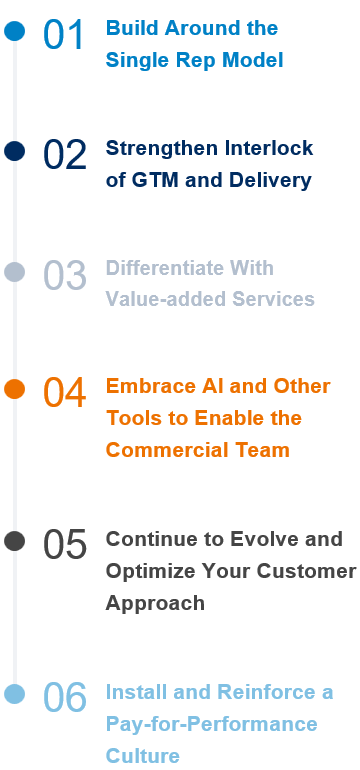Six Go-to-Market Imperatives
With an eye on achieving these double-digit growth targets, there are six go-to-market imperatives for go-to-market models for healthcare vendors and suppliers:
1. Move beyond single rep models
Diversify the go-to-market strategy to include various roles such as customer success managers (CSMs), business development representatives (BDRs), and technical specialists.
2. Strengthen go-to-market and delivery interlock
Ensure that the customer journey extends beyond the initial sale to include implementation and ongoing support, emphasizing customer experience.
3. Differentiate with value-added services
Augment products with services that support HCPs and address broader provider challenges.
4. Embrace AI
Integrate artificial intelligence into enablement plays for sales, marketing, and customer service teams.
5. Continuously evolve commercial models
Stay agile and adaptable to keep pace with the market and outperform static competitors.
6. Adjust sales compensation strategies
Align compensation with broader commercial strategies and drive desired behaviors to support the high-growth model.
Industry Go-to-Market Imperatives Begin with Upstream Elements and Culminate with Sales Compensation







